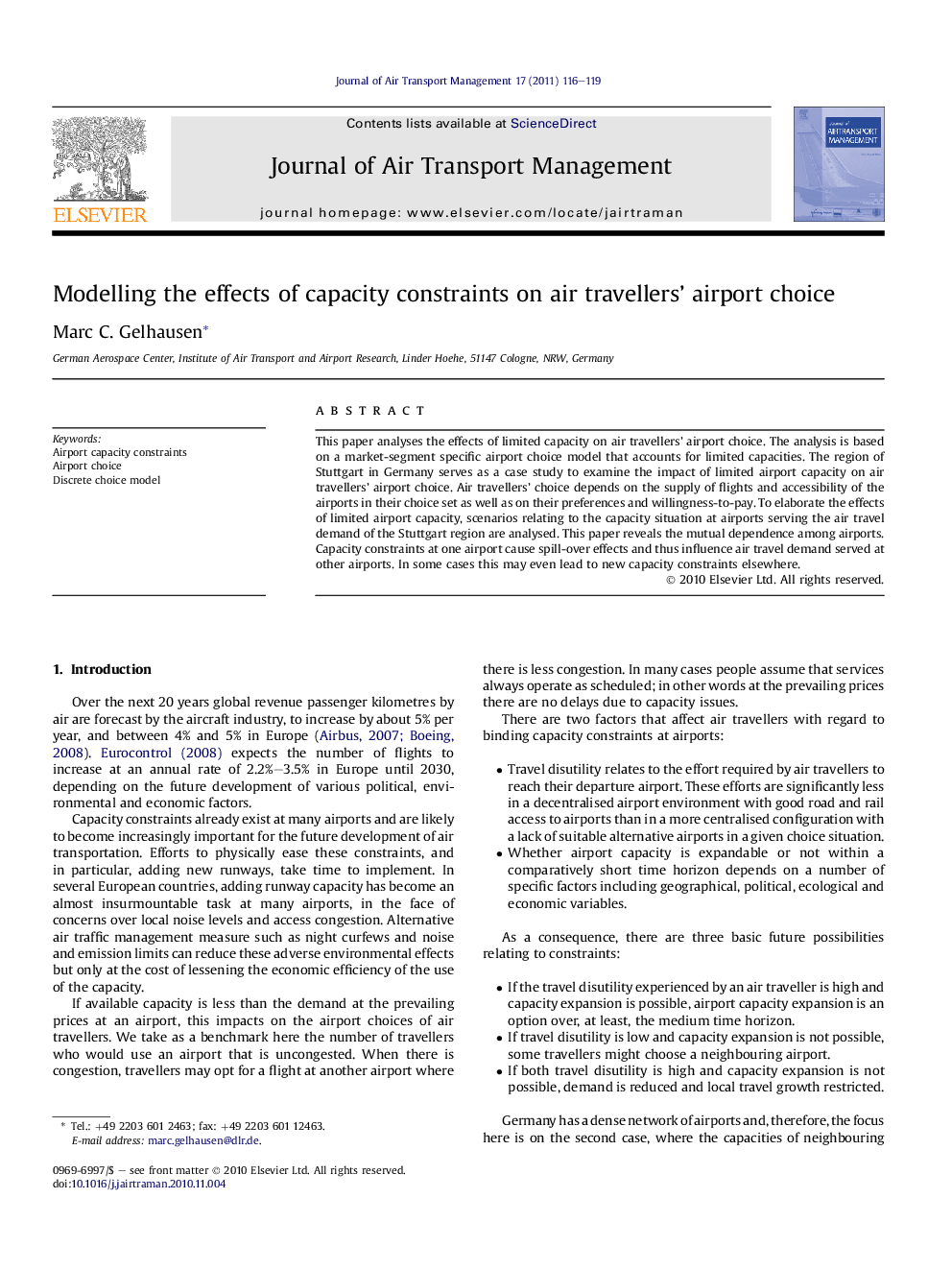| Article ID | Journal | Published Year | Pages | File Type |
|---|---|---|---|---|
| 1031110 | Journal of Air Transport Management | 2011 | 4 Pages |
This paper analyses the effects of limited capacity on air travellers’ airport choice. The analysis is based on a market-segment specific airport choice model that accounts for limited capacities. The region of Stuttgart in Germany serves as a case study to examine the impact of limited airport capacity on air travellers’ airport choice. Air travellers’ choice depends on the supply of flights and accessibility of the airports in their choice set as well as on their preferences and willingness-to-pay. To elaborate the effects of limited airport capacity, scenarios relating to the capacity situation at airports serving the air travel demand of the Stuttgart region are analysed. This paper reveals the mutual dependence among airports. Capacity constraints at one airport cause spill-over effects and thus influence air travel demand served at other airports. In some cases this may even lead to new capacity constraints elsewhere.
Research highlights► The study of German airports shows that capacity constraints can influence passengers.’ airport choices ► Capacity constraints at one airport can result in spill-over effects affecting other airports. ► As congestion builds at Stuttgart Airport, business travellers with a higher willingness-to-pay crowd out leisure travellers with a higher elasticity of travel time.
